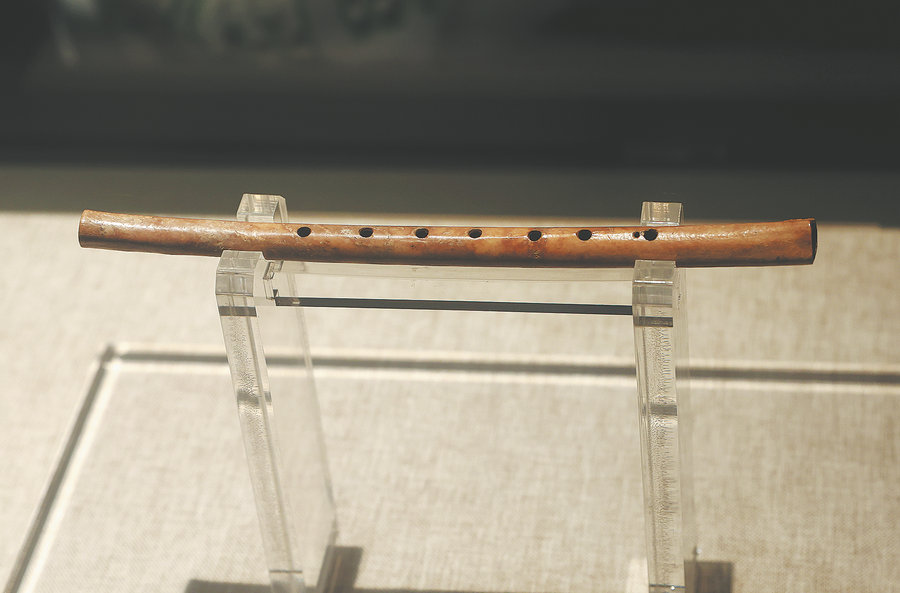

The bone flute
At 11 am sharp, the show begins with Yan Wentao dressed in costume from the Neolithic period (10,000 to 4,000 years ago), or New Stone Age, blowing a bone flute behind an LED transparent screen, with the screen flashing images of forest and mountains.
Yan is a member of the Huaxia Ancient Music Orchestra, the resident ensemble of Henan Museum founded in 2000, which currently has 30 members. Huaxia is a romantic Chinese word referring to China.
To revive the country's ancient musical traditions, the orchestra plays about 10 types of replicas of ancient musical instruments housed in Henan Museum, which come alive in an acoustic feast that transports listeners to a long-lost era.
With the introduction of the show's host, audiences learn that the bone flute is a replica of a key exhibit at Henan Museum of the Jiahu bone flute (gudi), from about 8,700 years ago.
Excavated at the Jiahu Site, Wuyang county, Henan province in 1987, the 23.1-centimeter-long flute was made from the wing bone of a bird from the crane family. It is shaped like a long pipe with seven holes drilled in a straight line down one side. It is the earliest musical instrument unearthed in the country that still produces sounds.
"The flute has a clear five-octave range, a possible basis for a seven-note scale. The discovery of the Jiahu bone flute has rewritten a portion of China's music history," the host says.
"Every time I perform the bone flute onstage, I feel I'm taking the audience on a trip back 8,700 years by bringing its timeless melodies back to life. The haunting melodies once reverberated across ancient China, echoing the sentiments of our early ancestors," says Yan, 28, who learned to play the bamboo flute as a child and joined the Huaxia Ancient Music Orchestra after he graduated from a music training program launched by Zhengzhou University and the Henan Vocational Institute of Arts in 2018.